Unlocking Hormonal Balance Through the Ancient Art of Acupuncture
Photo by RDNE Stock project from Pexels
OUR PERSPECTIVE ON HORMONAL HEALTH
In Traditional Chinese Medicine (TCM), the body is viewed as an interconnected system where imbalances in one area affect the whole. Hormonal imbalances are often linked to deficiencies or excesses in specific organs, such as:
Kidney Yin or Yang Deficiency: Linked to reproductive and adrenal hormone imbalances.
Liver Qi Stagnation: Affects mood, menstrual cycles, and detoxification processes.
Spleen Qi Deficiency: Contributes to fatigue, weight gain, and digestive issues.
Acupuncture works alongside TCM herbal medicine and lifestyle adjustments to address these root causes, offering long-term solutions rather than quick fixes.
Acupuncture, an ancient practice rooted in Traditional Chinese Medicine (TCM), offers a holistic and effective approach to addressing hormonal imbalances. By targeting the underlying causes rather than merely alleviating symptoms, acupuncture helps restore harmony within the body, thus reducing symptoms like night sweats, insomnia, mood swings, other perimenopausal/menopausal symptoms, PMS and more.
UNDERSTANDING HORMONAL IMBALANCES
Hormonal imbalances occur when there’s too much or too little of a specific hormone in the bloodstream. Common causes include:
Chronic stress (affecting cortisol levels)
Poor diet and lack of exercise (affecting sugar levels)
Sleep disturbances (affecting the adrenal glands)
Age-related changes, such as menopause or andropause (dryness, lack of libido, etc)
Medical conditions like PCOS, hypothyroidism, or diabetes (affecting the endocrine system)
Symptoms of hormonal imbalances may include:
Mood swings, anxiety, or depression
Fatigue and low energy
Irregular menstrual cycles or heavy periods
Hot flashes and night sweats
Weight gain or difficulty losing weight
Infertility or reduced libido
HOW ACUPUNCTURE HELPS BALANCE HORMONES
Acupuncture works by stimulating specific points on the body to regulate the flow of Qi (energy) and promote balance across bodily systems. In the context of hormonal health, it influences the endocrine system, which is responsible for hormone production and regulation.
1. Regulating the Hypothalamus-Pituitary-Adrenal (HPA) Axis
The HPA axis plays a crucial role in managing stress and hormone production. Acupuncture calms the nervous system, reducing cortisol levels (the stress hormone) and restoring balance to the HPA axis. This helps stabilize hormones like estrogen, progesterone, and testosterone.
2. Supporting Reproductive Health
For individuals dealing with menstrual irregularities, PCOS, or infertility, acupuncture improves blood flow to the ovaries and uterus, encouraging optimal function. It also supports the regulation of hormones like follicle-stimulating hormone (FSH) and luteinizing hormone (LH).
3. Alleviating Menopause Symptoms
Acupuncture is highly effective for managing menopause-related hormonal shifts. It reduces the frequency and severity of hot flashes, improves sleep quality, and balances mood swings.
4. Promoting Thyroid Health
Hormonal imbalances related to the thyroid can lead to conditions like hypothyroidism or hyperthyroidism. Acupuncture helps regulate thyroid function by addressing the underlying Qi deficiencies or excesses contributing to the imbalance.
5. Enhancing Sleep and Energy Levels
Sleep disturbances are often linked to hormonal imbalances. Acupuncture stimulates points associated with relaxation and sleep regulation, such as the Shen Men (Spirit Gate) and Yin Tang (Third Eye). Improved sleep leads to better overall hormone regulation.
SCIENTIFIC RESEARCH:
VALIDATING THE EFFICACY OF ACUPUNCTURE FOR HORMONE BALANCING
In recent years, a growing body of scientific research has lent credibility to the use of acupuncture for hormone balancing. Several studies have demonstrated the effectiveness of acupuncture in treating various hormonal disorders and imbalances. For instance, a systematic review published in the Journal of Acupuncture and Meridian Studies found that acupuncture was effective in improving menstrual disorders and hormonal imbalances in women with PCOS.
Another study, published in the journal Acupuncture in Medicine, examined the effects of acupuncture on menopausal symptoms. The researchers found that women who received acupuncture treatments experienced significant reductions in hot flashes, night sweats, and other menopausal symptoms compared to those in the control group. These findings suggest that acupuncture may be a valuable tool for managing hormonal changes associated with menopause.
TIPS FOR SUPPORTING HORMONAL HEALTH ALONGSIDE ACUPUNCTURE
1. Adopt a Hormone-Friendly Diet
Include foods rich in omega-3 fatty acids, antioxidants, and phytoestrogens, such as salmon, leafy greens, and flaxseeds.
Avoid processed foods, caffeine, and excessive sugar as well as alcohol for a good night’s sleep.
2. Practice Stress Management
Incorporate mindfulness practices like yoga, meditation, or tai chi to calm the mind and reduce cortisol levels.
3. Exercise Regularly
Engage in moderate exercise like walking, swimming, or strength training to improve insulin sensitivity and regulate hormone levels.
4. Prioritize Sleep
Aim for 7-9 hours of quality sleep per night. Use good sleep hygiene before going to bed, such as turning off devices and news a couple hours ahead of time. Acupuncture can also help improve sleep cycles.
5. Consider TCM Herbal Remedies
Your acupuncturist may recommend herbal supplements tailored to your specific imbalance.
Unlike conventional treatments that may rely on synthetic hormones or medications with potential side effects, acupuncture provides a natural and non-invasive approach to healing. It works holistically, addressing both the physical and emotional aspects of hormonal health.
Whether you’re dealing with stress-induced imbalances, menstrual issues, or age-related hormonal changes, acupuncture offers a safe and effective way to restore harmony to your body and mind. Always seek a Licensed Acupuncturist (L.Ac.) when receiving acupuncture.

